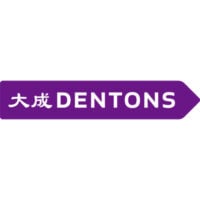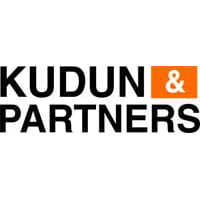
China 2019

Associate legal director | Skechers China





Nancy Wei
Associate legal director | Skechers China
Frist, a capex investment project in South China to build a 200,000 square metre distribution centre. This project included the purchase of land, building construction, sorting system purchasing from domestic and overseas suppliers, which has been led by a diverse project team comprising of commercial, legal and finance teams from both China and the US. Legal support include dealing with all contracts (including general contractor building contracts, automated sorting systems and more), commercial negotiation and dispute mitigation and resolution. Second, a settlement on enforcement for a vital IP litigation case. Through hard settlement negotiations, we supported the company to successfully claim a compensation of ¥3m from the infringer, saving lots of resources and legal fees in further enforcements to stop infringement which could not be done via the traditional way of handling such cases.
In-house legal counsel will be deeply involved in company legal and compliance systems to mitigate risks at an earlier stage, rather than acting as a “fireman” to handle litigations after risks or issues actually arise. In addition, legal teams will be subdivided to different professional focuses such as IP, commercial contracts, litigation and dispute resolution, project support and compliance, rather than the traditional role of advising on general issues without a professional focus. Finally, mega data and technology development will help in-house legal counsel understand legal environments and directions of court judgments and even select more suitable external lawyers.
I have changed the legal team to have more subdivided focuses on various professional streams to help improve communication efficiency and build up a more professional team. By using both external and internal sources, I also introduce and provide legal trainings to my team members to help them get connected with the latest developments in legislation and legal practice. More professional trainings and expertise for the legal team would help support business growth with more efficiency and better risk mitigation.
Currently I would not consider going back to a private practice role. The pros of working in private practice are that one can choose to work from home and personal income is generally higher than that of in-house legal counsels. Cons include the pressure of sourcing clients and cases and for lawyers working in law firms, they have comparatively narrow expertise areas. For example, non-litigation lawyers may not have many chances to handle litigation cases in a firm. For in-house legal counsel, they are more connected with the actual business environment and have more experience in finding solutions to solve practical issues. On the other hand, in-house counsel have comparatively lower incomes and also have fewer opportunities to be more specialised in one specific legal area.
In-house lawyers shall proactively understand business status and trend and reasonably identify the key legal risks and suggest solutions. We should also be proactive to get more familiar with internal operations of the company and systematically identify the potential legal risks in each division of the company. In-house lawyers could attend business meetings and ensure the legal team’s work and priorities are in line with the need of business development. More workshops between the business team and legal team can also be arranged to discuss and align key issues and ways of working.
The new ecommerce law; Regulations on price marking; IPR related laws and judicial decisions, especially regarding trademarks and patents.
For litigation cases, we have designed and used a litigation follow up chart to specify types of disputes, relevant amounts, evidence and analysis, a summary of each trial judgment and more. This puts in-house legal teams and external counsel on the same page which helps improve communication and exchange efficiency, allowing us to focus on key issues. When selecting external counsel, we tend to choose lawyers who have expertise in providing legal services to the same industry or a similar industry to our own, which we understand will be more helpful as key legal issues are similar among players in the same or similar industry. FOCUS ON… The in-house legal function is an “organic” part of an organisation which shall not be isolated simply because of its professional and independent position. Being in-house legal counsel, we shall first clearly understand and draw the red line to prevent the organisation from conducting illegal issues and protect them from being damaged or infringed from third parties. Meanwhile, in the real world, no organisation can actually operate with “zero” legal risk, in-house legal counsel shall be good at advising on the balance between risks and business growth or opportunity, sometimes such a balance can be a kind of art which requests in-house legal to have not only solid legal expertise but also experience and knowledge of finance, economics, government affairs and other relevant aspects. What’s more important is to “jump” outside of the traditional legal mind-set and try to see the full picture and provide workable solutions.